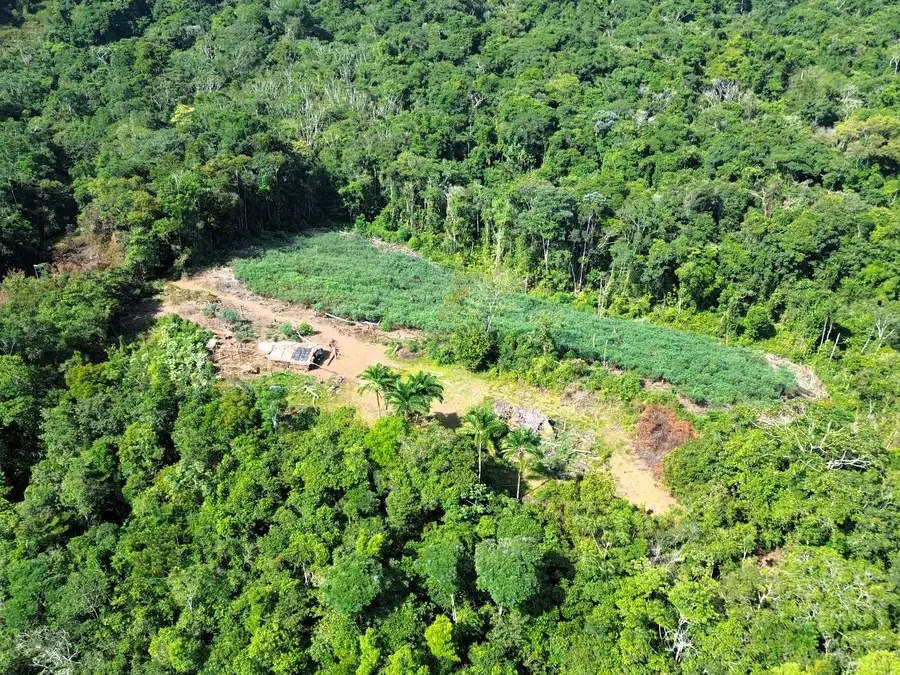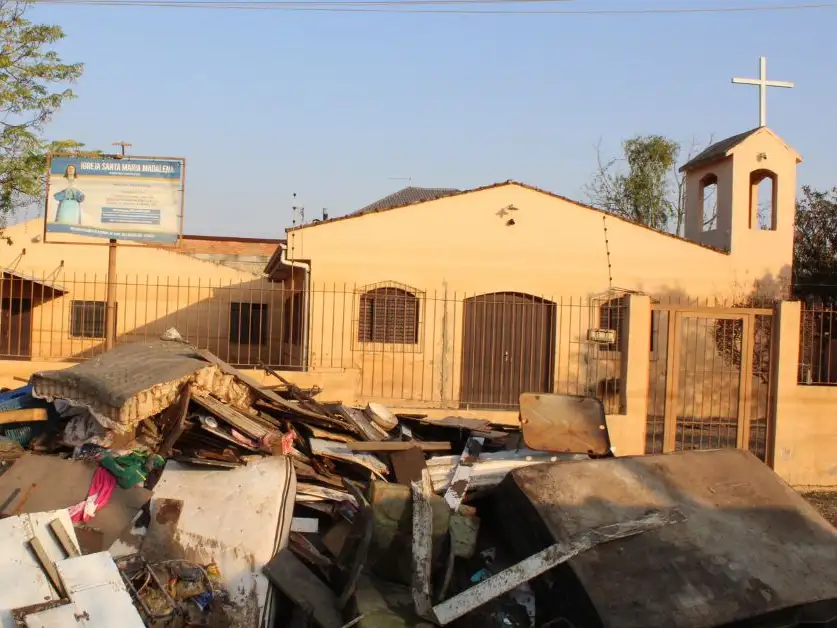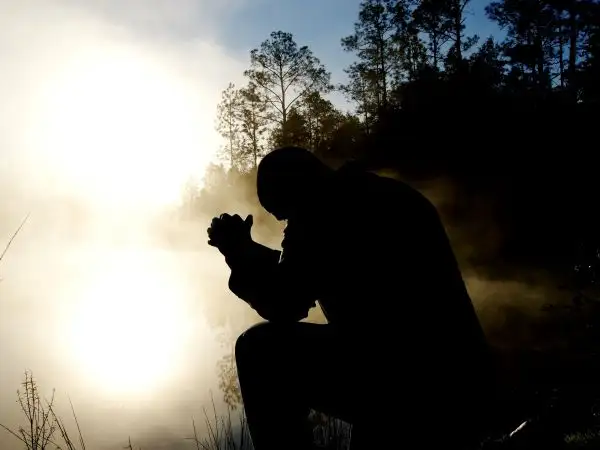

Deforestation in the Amazon. Credit: Hutukara Associação Yanomami (HAY)
The Amazon is a vast rainforest of incredible ancient trees. It covers approximately 2.3 million square miles in South America – roughly the size of 48 states in the US - and represents more than 40 per cent of tropical forests on Earth.
It is a region that is vital for the equilibrium of our common home. All the lush, diverse fauna helps to filter carbon dioxide and avoid the warming of Earth.
Sadly, the huge diversity of plant life is at high risk. Deforestation, mining and climate change are killing this vital ecosystem. If deforestation continues, the Amazon will lose its ability to produce its own rainfall and the largest rainforest on the planet will become dry grassland.
When the world saw the Amazon burning, people realised we have to change
We are running out of time to save the Amazon
As Pope Francis wrote in 2020, what happens in the Amazon is also our concern because its land is also 'ours'.
This September the president of Brazil, Luiz Inacio Lula da Silva, highlighted the fragility of the Amazon at the United Nations conference in New York: “The Amazon is facing the worst drought in 45 years.”
During August, in Brazil alone, wildfires destroyed 5 million hectares of Amazon rainforest.
The destruction caused by wildfires has set a record high that is more than double the average of the past 12 years in the same period. According to the Global Wildfire Information System the area burnt in Brazil is about the size of Germany.
Severe droughts have worsened the spread of fires in Brazil.
No time to recover
In 2023, the state of Amazonas in Brazil experienced the worst drought in 121 years. All 62 municipalities declared a state of emergency. The consequences of this drought persisted until this year, even after the rains returned.
During 2024, the natural climate phenomenon called El Nino, which is associated with warmer temperatures, was made worse by the impact of climate change. This dangerous combination led to less humid air and dry terrain, which created a perfect mix for rapidly spreading wildfires across the Brazilian Amazon.
River levels dropped dramatically again, severely threatening the ability of local people to make a living and take care of their families, as so many depend on the river for transport, food and drinking water.


Destruction in the municipality of Canoas, Rio Grande do Sul, Brazil, after flooding in April 2024. Credit: Caritas Brasileira
By 27 September, all 62 municipalities had again declared a state of emergency due to the forest fires and drought that affect over 560,000 people. The drought this year is on track to be more severe and have worse impacts than in 2023, such as infectious diseases and food insecurity, due to people’s inability to depend on fishing.
Even regions not usually affected are at risk of facing droughts. Authorities fear that the state of emergency will continue until river levels return to pre-drought levels.
An urgent call for a governmental change of path
During the National Conference of Bishops of Brazil, Church figures expressed their concern and called for urgent action by the national government:
“The gravity of this moment demands courage, wisdom and swift repair of the situation. The climate has been changing at an astonishing rate lately, with floods in the south of the country, one of the biggest droughts in large parts of the country, and a frightening increase in the number of fires.”
The document from the Episcopal Conference highlights the ineffectiveness of environmental policies in Brazil as deforestation, fires and illegal mining continue without effective control – a situation they identify as the result of a socio-economic system that “corrupts, excludes and kills”.
Remembering Pope Francis’ words, bishops from Brazil made a call for urgent action to prevent, mitigate and repair the damage to our planet.
As time goes by, however, I realise that we are not reacting satisfactorily, because this world that welcomes us is falling apart, and perhaps approaching a breaking point
Supporting the most vulnerable communities
A better world needs all of us. That’s why we are proud to work alongside Caritas Brasileira to support 570 families from riverside fishing communities in the state of Amazonas to prepare themselves for the drought before it hits its peak, predicted to arrive between November to December.
Families living along the channels of the Purus River, particularly from the mouth of Tapauá City to Belo Monte City, are especially at risk, isolated and often overlooked by public authorities.
To support them to better prepare for this crisis, Caritas Brasileira will:
Provide training and water filters to ensure families have access to safe drinking water.
Deliver food that can be stored if transportation to local markets becomes impossible.
Transfer cash to ensure families can buy hygiene items, medicines and other non-perishable food sources to last through the drought’s peak.
We will also support 30 families that are most vulnerable to having their homes damaged, or lost completely from soil erosion at the river’s edge, with cash to help them relocate further inland.
St Francis of Assisi: the patron saint of ecologists
As we commemorate the feasts of St Francis, on 4 October we are urged to recognise that we are at a crucial moment for protecting the environment, the climate and the ecological balance of the entire planet.
Remembering St Francis’ teachings on nature as the mirror of God, and our need to protect nature, we share a prayer from the Brazilian community of Sao Francisco da Foz de Tapaua. It is a prayer to bring hope to all communities affected in the Amazon and across our common home.
Prayer to St Francis of Assisi
Beloved Saint Francis, with great confidence I turn to you for intercession, knowing that your life has pleased God through your radical living of the gospel.
Take this request, which I make to you with all the strength of my soul, to our lord Jesus Christ’s feet. I am willing and happy to know that I will be answered as this request is for the honour and glory of the holy trinity.
Dear Francis, father of the poor, Patron of Foz de Tapaua, do not forget to also turn to the Immaculate heart of Mary Raina dos Anjos, because as a mother she knows very well how to make our prayers tender to our lord.
Amen

Novena to St Francis
This novena is a song of penitence and praise, guiding us to care for the earth and for our most vulnerable sisters and brothers, especially the Amazon peoples. They are currently under grave risk given their fragile situation, often in remote locations far from government services.

